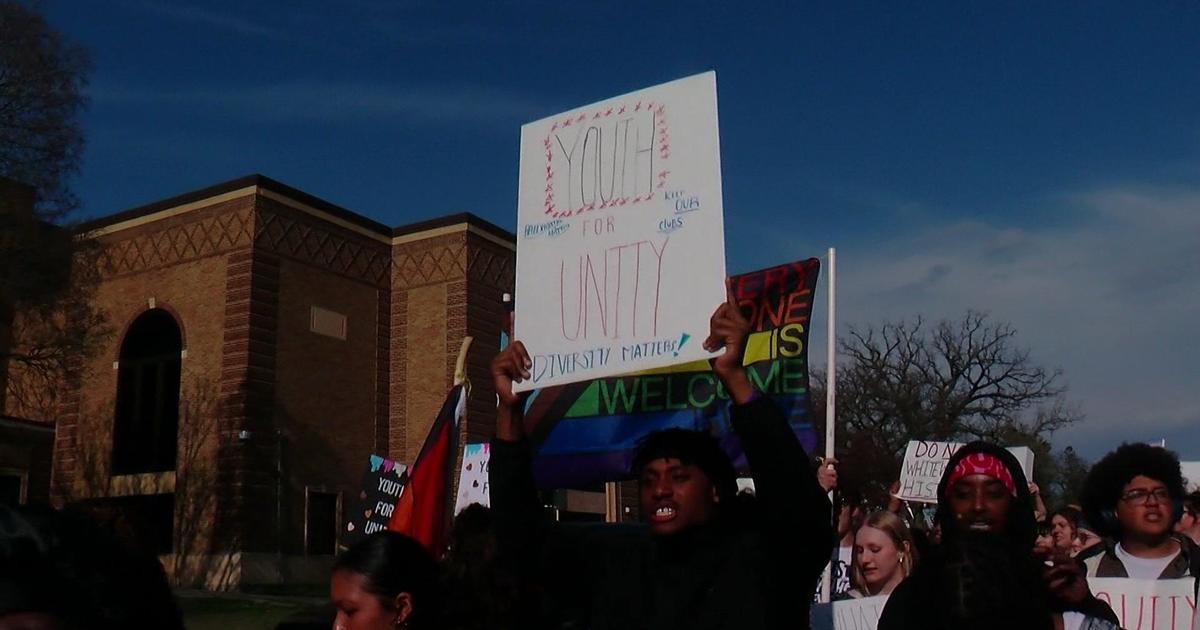Movie Blog: 'Pink Ribbons' Wants You Mad About Breast Cancer Culture
This movie wants you mad. Really mad. Like you'll never see a pink ribbon on a Ford Mustang again without feeling a definite annoyance at the fact we don't quite know what causes the disease, which, on the spectrum of emotions, is about the opposite of the comforting color pink.
Directed by Léa Pool, Pink Ribbons Inc. is one of those documentaries that presents an argument with such force that it changes, if only slightly, the way you see something in the culture. In this case, the movie aims its lens on the culture that envelopes breast cancer -- the ribbons, the walks, the runs, the products ranging from makeup and yogurt to Kentucky Fried Chicken and handguns.
It's a look at cause-marketing and how companies took a terrible and deadly disease and associated it with pink. While some -- especially those who run and walk for the cure -- are earnest, doing what they can to help; there are others (the PR people, the board leaders) who are concerned, in the end, with the bottom line. Just imagine how many women -- who do the lioness' share of the shopping in this country -- who would buy one product over another because its pink.
Not only are some of these companies cashing in on the culture, but the movie argues that the pink products themselves are sometimes cancer-causing. Many makeups, for instance, have carcinogens. As do foods, especially dairy products. And while it is indeed hypocritical in the extreme for companies to sell products that give you cancer under the guise of fighting the disease, it gets worse. Why? Because the organizations that throw big bucks toward research (think Komen, Avon) rely on these companies to help them raise funds, according to the movie.
Well how can supporting research be bad? It's not, in general. But this isn't the Higgs boson here. A meteor made of watermelon would strike the planet before KFC introduced a boson bucket. There are vested interests involved when it comes to breast cancer.
The movie makes this hypothetical: What if we learned that air pollution via automobiles causes breast cancer? What then does Komen do if Ford still wants to sell pink ribbon cars? Do they let them and take the money because more research will help in the long run? Or do they demand Ford make cleaner-running cars? Or refuse them altogether?
It can get tricky. And sometimes campaigns blow up in company's faces, turning their ads into things unintentionally humorous.
In the area of characters, Pink Ribbons is quite strong. It has a large array of individuals, and more importantly, it has people who seem to know what they're talking about. One group of individuals comes from a Texas support group of women who are living with stage-four breast cancer. If you don't know what stage four means, consider the writer Christopher Hitchens' words: there is no stage five.
Hitchens, who recently died of esophageal cancer, also spoke on something which the movie's many characters suffering from cancer touched on. That is, the language of "battling" cancer. Many women, especially those who are facing their own mortality, hate it. It's not so much a battle, they say, but a series of like-sucking appointments and tasks. And what about all those women who lose their "battle," if you will? Did they not try hard enough? Did they not have the courage? Were they weak? Lazy? For a foe so cunning and elusive -- and which actually starts from inside you -- the language is not adequate, to put it mildly.
All I've written so far are just fragments of the movie. While I'm no expert on breast cancer or its culture, I can say that the movie's argument was effective in making me extremely suspicious, if not angry, at the way things currently are. If we are to beat the disease, which is robbing our world of lives ever so quickly, perhaps we should not be so complacent with pink. Perhaps anger will help in the search to understand and ultimately conquer breast cancer.
By the way, the first breast cancer ribbons weren't pink, according to the movie. They were salmon colored. A lady sent them out in letters so that scientists would investigate the environmental causes of the disease. Companies and magazines saw the ribbons and loved them. They asked the lady if they could use the ribbons. She said no, immediately realizing they'd be used for marketing purposes and not her mission. The companies then turned to their lawyers. How do we deal with this lady and the ribbons? they asked. The answer: change the color.
Pink Ribbons is playing at the Lagoon Theater. It's argument is based on the book Pink Ribbons, Inc: Breast Cancer and the Politics of Philanthropy by Samantha King, who speaks often in the movie.



